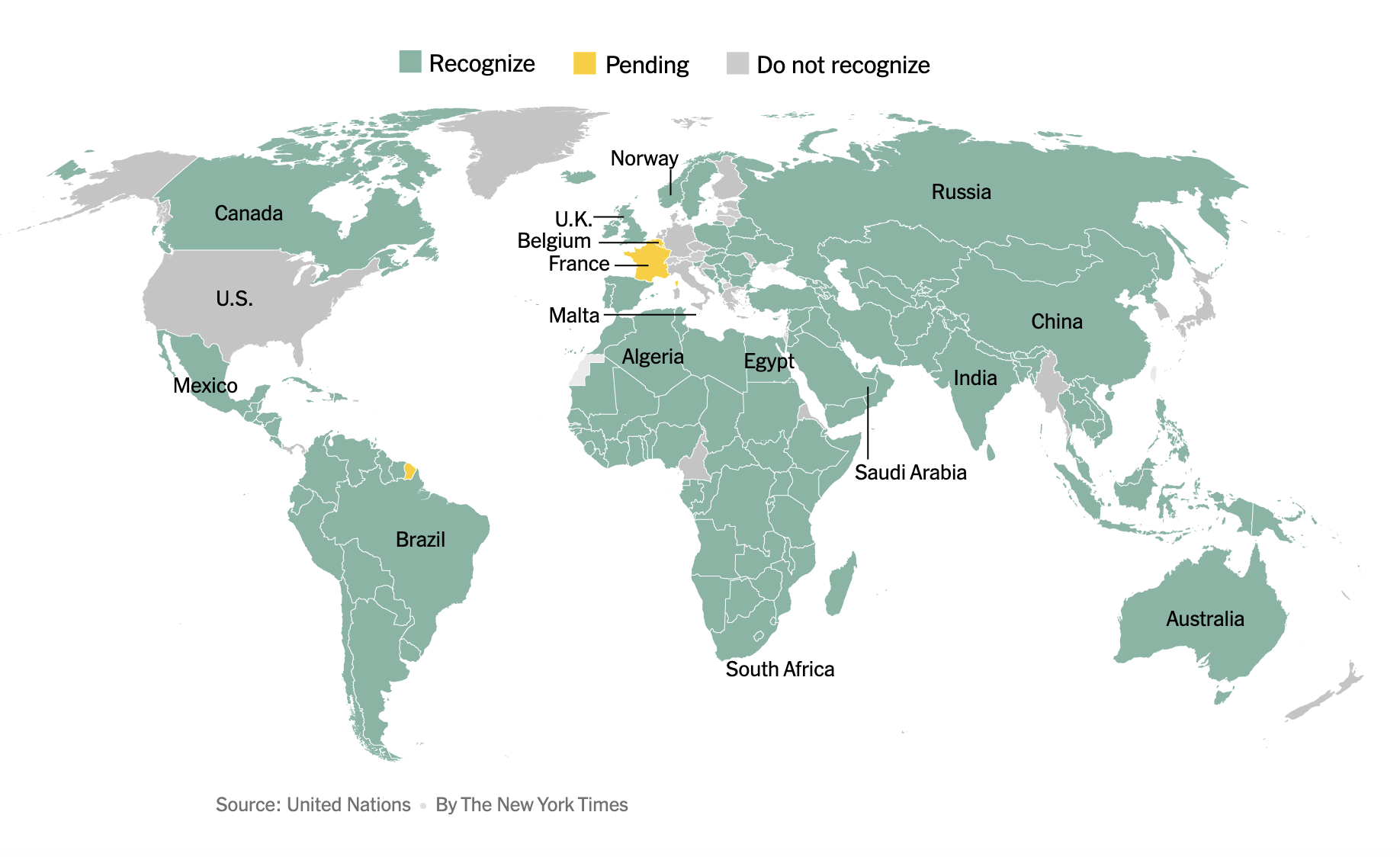Longtime Israeli Allies Recognize Palestinian State; Netanyahu Vows It Won’t Happen
France officially recognized Palestine as a state on Monday — a day after Britain, Canada, and Australia became the first G7 nations to take this step. Portugal joined them as well, while more nations are expected to make the symbolic move later today.
About 150 countries worldwide, or around three-quarters of UN member states, now recognize a Palestinian state.
The move is significant because these are historically some of Israel’s closest allies. At the same time, the announcements don’t change the reality on the ground. Israeli Prime Minister Benjamin Netanyahu called the recognitions a threat to Israel’s existence and said it rewards terrorism, adding a Palestinian state will never happen.
This summer, France led a group of countries signaling they would recognize a Palestinian state at the U.N. this week. Some said they’d back off if Israel issued an immediate ceasefire, but seemed to have changed their tune after the country intensified its offensive in Gaza.
French President Emmanuel Macron, at the U.N. General Assembly in New York, said, "We must recognize that Palestinians and Israelis are living in twin solitude: The solitude of the Israelis following the historic nightmare of the 7th of October 2023 and the solitude of Palestinians at their wits' end in the face of this ceaseless war."
British Prime Minister Keir Starmer said he hopes the decision will “revive the hope of peace for Palestinians and Israelis.” He added, “This solution is not a reward for Hamas because it means Hamas can have no future, no role in government, no role in security.”
TWO-STATE SOLUTION
Recognition of a Palestinian state indicates a two-state solution with a sovereign Palestinian state — encompassing the Gaza Strip and the West Bank, with East Jerusalem as its capital — next to Israel. Among the major challenges: there are no agreed upon borders of what Palestine encompasses, and Palestinians currently are led by two different governments, including one (Hamas) that believes Palestine includes all of Israel.
The Palestinian Authority (PA) is in partial control of the West Bank, which has been occupied by the Israel since the 1967 war. More than 95% of Palestinians see the PA as a corrupt governing body.
Hamas has been the sole governing body of Gaza since 2007.
European countries backing a Palestinian state have specified that it would be led by the Palestinian Authority.
REACTIONS
The U.S. is backing Netanyahu, who has vowed that “there will be no Palestinian state” and hinted that he will respond by annexing large parts of the West Bank.
Both Palestinian governments celebrated the move. The Palestinian Authority called it “an important and necessary step toward achieving a just and lasting peace.” Hamas called it “one of the fruits” of the October 7th terror attacks.
The two sides held talks for two decades in the 90s and early 2000s. But ultimately, Palestinian leaders rejected several offers to create a Palestinian state as insufficient.
The U.S. continues to hold its position that Palestinian statehood should only come from a negotiated peace process that includes Israelis and Palestinians. Secretary of State Marco Rubio admitted he failed to dissuade allies from moving forward.
BIG PICTURE
Symbolically, this is one of the sharpest breaks yet between Israel and its key Western allies. Practically, nothing changes on the ground: borders remain undefined, and multiple Palestinian governments remain in power.
Diplomatically, it underscores growing frustration with Netanyahu as the war nears its two-year mark — and signals that more global pressure is coming at this week’s UN General Assembly.


